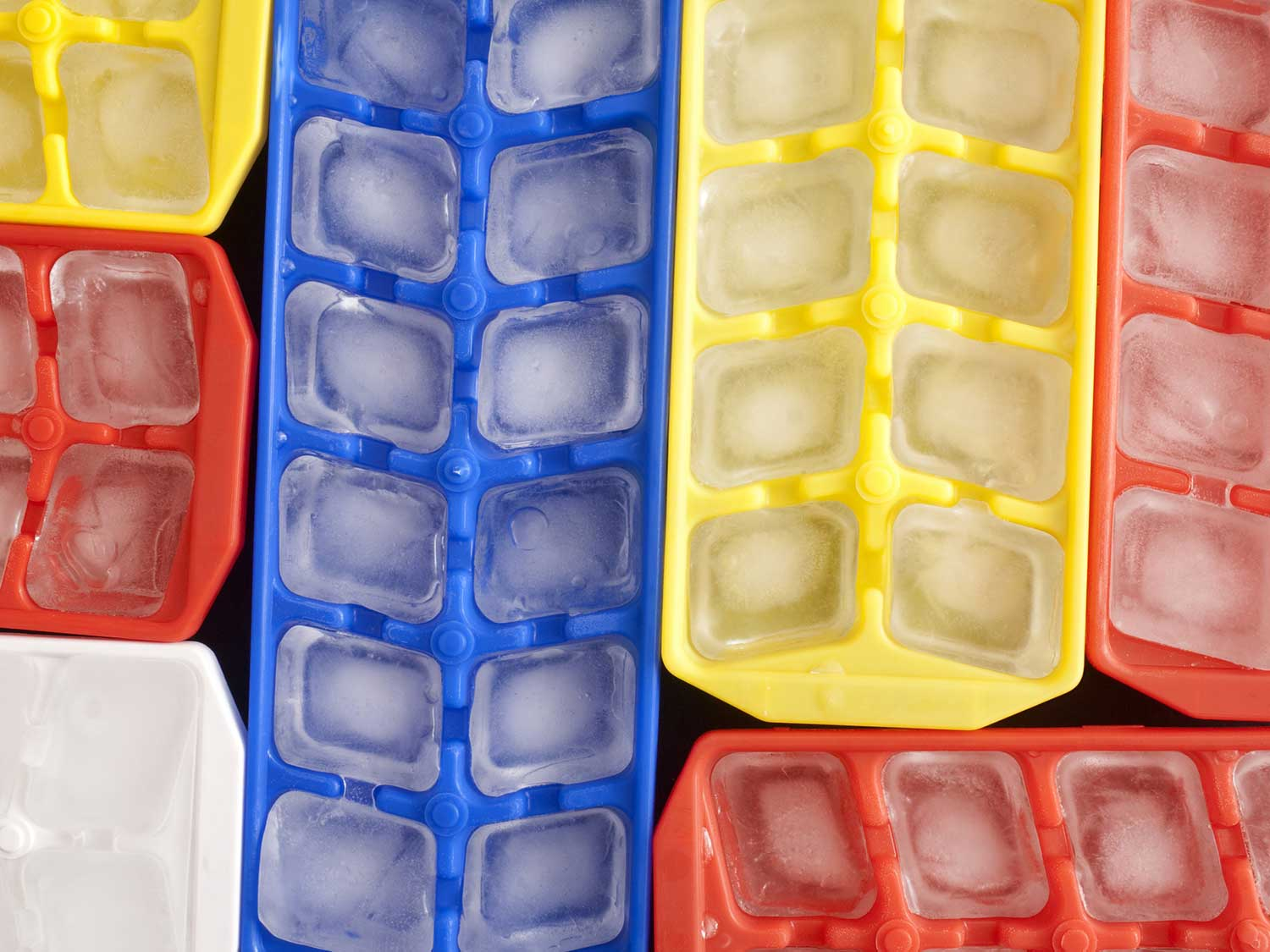To a preschooler, even everyday items — like ice cubes — are something new to explore and learn about. Try this sensory, hands-on art activity in your kitchen.
What you need:
- Ice cube tray
- Small pitcher
- Spoon
- Construction paper
- Crayons
- Newspaper
- Paper towels
What to do:
- Place an ice cube tray in the sink and fill the pitcher with water. Encourage your child to fill the tray by pouring the liquid from the pitcher.
- Together, put the tray into the freezer. Keep checking to see what happens to the water as it chills. Talk about the thin layer of ice that begins to form. Tap the frozen liquid with a spoon to see if it's solid.
- While you're waiting for the water to freeze, invite your child to draw a picture on construction paper with the crayons.
- Place some newspaper on a table. When the water has turned to ice, help your child twist the tray to pop some ice cubes onto the newspaper. What happens when you hold the cubes in your hands? Discuss how the warmth of your hands makes the ice melt and become water again!
- Have your child use an ice cube like a crayon to draw on a new piece of construction paper. The melting cube will leave watery marks behind. Encourage him to move the drippy ice cube all around the page to create great designs. If the ice cube is too cold to hold, cover it with a paper towel. How is the ice drawing different than the crayon drawing?
- When your child has finished drawing, put the project aside to dry. Check on it from time to time to see what happens. When it's dry, your child may be surprised to see that his drawings have evaporated! Compare the crayon drawing and the ice drawing again.
Learning benefits:
- demonstrates the properties of water (freezing, melting, evaporating)
- builds fine-motor skills
